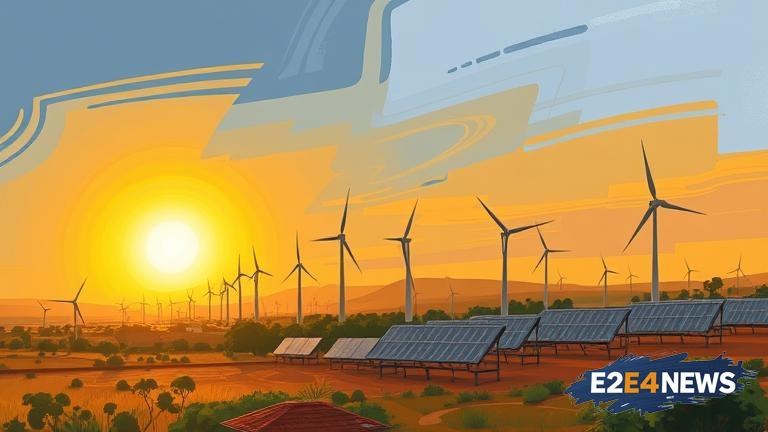The African continent is witnessing a significant shift towards renewable energy, driven by the need to address the pressing issues of energy access, energy security, and climate change. With many countries still struggling to provide reliable and affordable electricity to their citizens, renewable energy has emerged as a viable solution. Solar and wind power are leading the charge, with countries like South Africa, Egypt, and Morocco investing heavily in these sectors. The cost of renewable energy technologies has decreased dramatically over the years, making them more competitive with fossil fuels. This has led to a surge in investment, with many international companies and organizations committing to support Africa’s renewable energy ambitions. The African Union’s Agenda 2063 has set a target of ensuring access to clean and affordable energy for all Africans by 2030. To achieve this, countries are implementing policies and regulations to support the development of renewable energy. For instance, South Africa’s Renewable Energy Independent Power Producer Procurement (REIPPP) program has been instrumental in attracting private sector investment. Similarly, Egypt’s feed-in tariff scheme has encouraged the development of solar and wind projects. Morocco’s ambitious plan to generate 52% of its electricity from renewable sources by 2030 is another notable example. The benefits of renewable energy are numerous, including reduced greenhouse gas emissions, improved air quality, and enhanced energy security. Moreover, renewable energy can create jobs and stimulate local economies, contributing to sustainable development. However, there are also challenges to be addressed, such as the intermittency of renewable energy sources, grid integration, and energy storage. To overcome these challenges, countries are investing in grid infrastructure, energy storage technologies, and smart grids. International cooperation and knowledge sharing are also crucial in supporting Africa’s renewable energy transition. The European Union, for example, has launched the Africa-EU Renewable Energy Cooperation Program to support the development of renewable energy in Africa. The program aims to promote policy and regulatory frameworks, enhance capacity building, and facilitate investment in renewable energy. Furthermore, the African Development Bank has launched the New Deal on Energy for Africa, which aims to achieve universal access to energy by 2025. The bank has committed to investing $12 billion in the energy sector over the next five years, with a focus on renewable energy. In addition, the Green Climate Fund has approved several renewable energy projects in Africa, providing critical financing for the development of solar and wind power. As the continent continues to transition towards a low-carbon economy, it is essential to address the issue of energy access, particularly in rural areas. Off-grid renewable energy solutions, such as mini-grids and solar home systems, can play a vital role in providing energy access to underserved communities. In conclusion, Africa’s renewable energy revolution is gaining momentum, driven by the need to address energy access, energy security, and climate change. With the right policies, investments, and international cooperation, the continent can unlock its vast renewable energy potential, driving sustainable development and reducing its dependence on fossil fuels. The future of Africa’s energy sector looks promising, with renewable energy set to play an increasingly important role in the years to come. As the continent continues to grow and develop, it is essential to prioritize sustainable energy solutions, ensuring a brighter future for generations to come.
